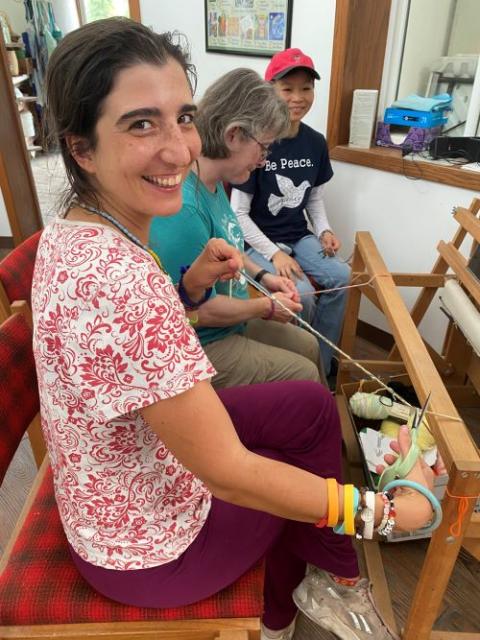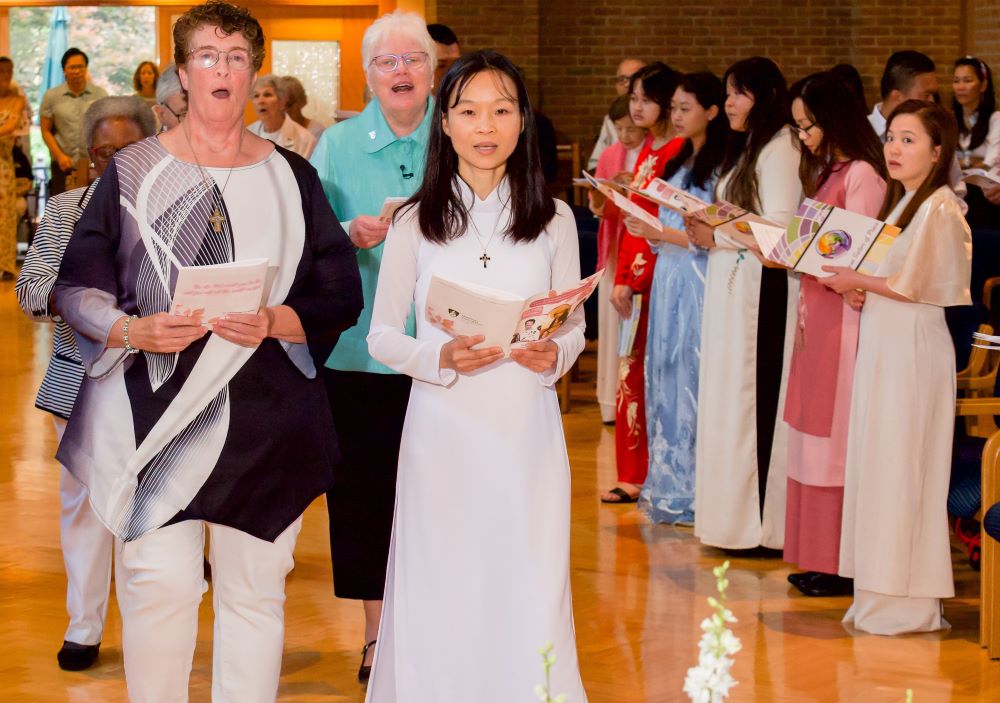
Cathy Buchanan, left, and Tram Bui make first vows to the Dominican Sisters of Peace in 2023. The Collaborative Dominican Novitiate since 2011 has welcomed almost 40 novices, with about half joining the Dominican Sisters of Sinsinawa or the Dominican Sisters of Peace. (Courtesy of Sarah Ferrall Photography)
One of the largest congregations of women religious in the United States has seen a recent increase in vocations. While there's no clear reasoning or data behind the trend, sisters in these two Dominican orders — Dominican Sisters of Peace and Dominican Sisters of Sinsinawa — say it's all because of their charism.
"This is where God intended me to go," Dominican Sister of Peace Ana Gonzalez, who professed her vows in 2018, told GSR. "I'm living a life that allows me to be joyful and live in peace and makes sense to me."
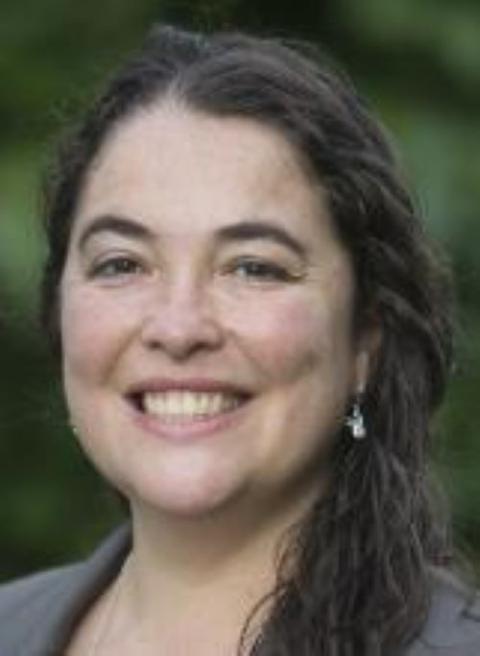
Dominican Sister of Peace Ana Gonzalez
The Dominican Sisters of Peace came into existence in 2009 when seven Dominican congregations merged into one congregation. (An eighth congregation entered in 2012.) The Dominican Sisters of Sinsinawa had one other community, the Dominican Sisters of Spokane, fold into the congregation in the 1990s. Some sisters also transferred from other congregations.
Gonzalez first met Dominican sisters as an undergraduate at Loyola University New Orleans, when she volunteered at the Dominicans' nearby senior center. She is currently studying at the Boston College School of Theology and Ministry.
"I really got to have a group of female role models who were awesome and making a change in the world and living with God grounded in their life," she said.
Gonzalez said she had encountered cloistered nuns before, but never active women religious. And it didn't occur to her that religious life could be an option for her until much later in life, which she partially attributes to her cultural upbringing as a Latina, in which women are validated by having children. At age 30, she finally realized her call to religious life after attending an ACTS Retreat. She contacted every active Dominican congregation she could find in the U.S. The Dominican Sisters of Peace were the only ones to respond.
About 75 to 100 women contact the Dominican Sisters of Peace sisters every year, with about 30 of those engaging more seriously. It typically takes 18 to 36 months from first contact to entrance.
"Our mission as vocation directors is to find where God is calling them," said Dominican Sister of Peace June Fitzgerald, the vocation minister for the Dominican Sisters of Peace, a role in which she has served since 2014.
The Dominican Sisters of Peace host a monthly discernment group as well as a monthly prayer group.
"We constantly have to be aware of what is helpful to the women — that's why we added the prayer group," said Fitzgerald, adding that women are hungry to learn how to pray and to have a deeper spiritual life than the routine of Mass, eucharistic adoration and the rosary they typically get at their parish. She and other members of their vocations team also meet one-on-one with women in discernment.
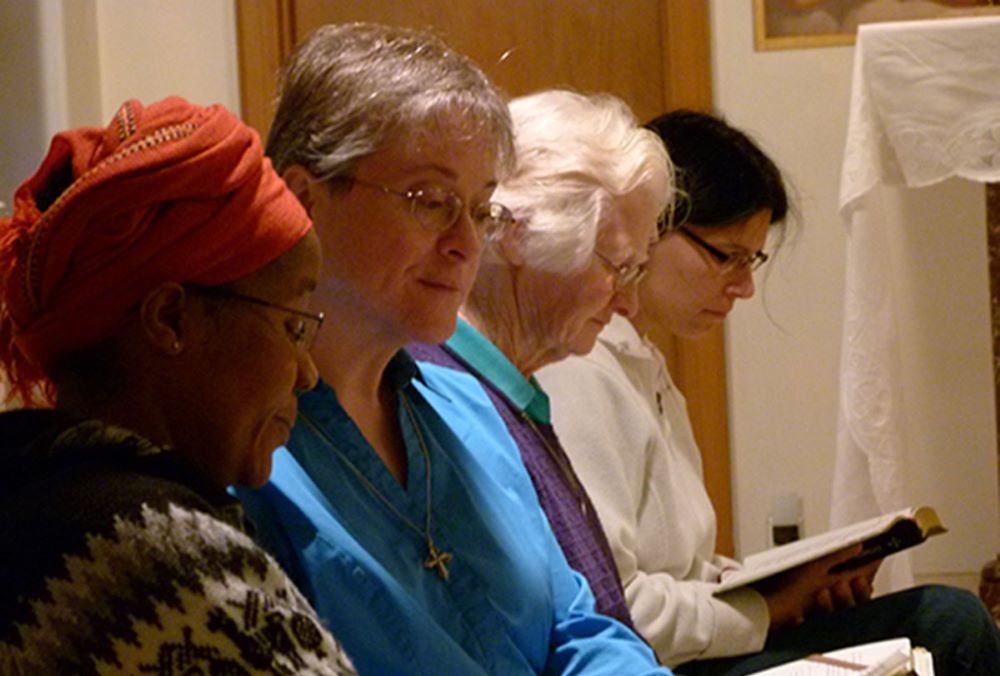
Dominican Sister of Peace June Fitzgerald, second from left, prays with other sisters in this undated photo. Fitzgerald has served as vocation minister for the Dominican Sisters of Peace since 2014. (Courtesy of June Fitzgerald)
Fitzgerald also believes in the importance of the internet as a way to promote vocations.
"A number of the women have said our website was helpful to them. We're very intentional about including resources for discerning," Fitzgerald said.
In the past, orders often got new entrants from alumnae of their schools. As the number of teaching sisters has declined, sisters are less visible, though. A strong online presence is a way sisters can make themselves more visible and present their way of life, Fitzgerald said.
The Dominican Sisters of Peace also hold weekend discernment retreats twice a year, as well as smaller half-day retreats throughout the year.
"Even 20 years ago, more sisters were out in the world," said Gonzalez. "We need to be creative with how we're interacting with people."
Sinsinawa Dominican Sr. Quincy Howard first encountered the sisters as an undergrad at Dominican University. But she also needed time to come to religious life.
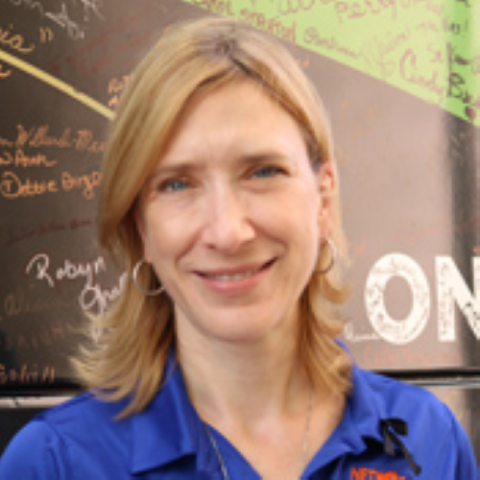
Sinsinawa Dominican Sr. Quincy Howard
"I was very much a non-practicing Catholic most of my adult life," she said. But around the time Pope Francis was elected in 2013, "I very much had a conversion experience," said Howard, who first professed her vows in 2017 and is currently engaged in congregational planning for her community. "I reached out to the sisters, not intending to be a sister, but I quickly did."
Both congregations have a two-year novitiate. The first year is a canonical year — a requirement that applies to all Catholic religious congregations for novices to spend a year devoted to prayer and study. The Dominican Sisters of Peace and the Dominican Sisters of Sinsinawa participate in the Collaborative Dominican Novitiate, along with over a dozen other Dominican congregations.
This program, which was founded in 1988, is intended to provide novice sisters with a cohort, as well as introduce them to other manifestations of the charism of religious life beyond their home congregation.
"It really has been a wonderful opportunity for Dominican sisters," Fitzgerald said. "It gives the women entering a cohort with whom to study, to pray, and to dream. I do think it has an impact on women saying yes. It can be a little daunting — am I going to be alone? There's energy and a reassurance in that. People want to be with peers, especially at the beginning."
The two Dominican congregations have experienced a slightly higher entrance rate than others in the U.S. According to a 2022 CARA report, only 8% of men and women religious institutes in the U.S. had more than one entrant. Ten percent of institutes had just one perpetual profession.
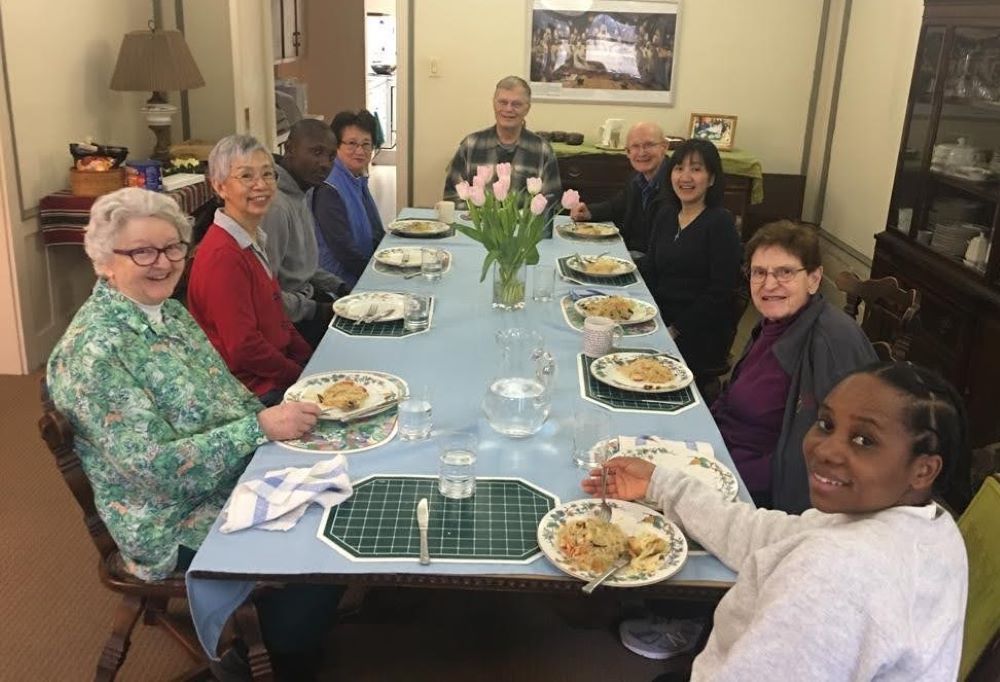
The 2018-19 Collaborative Dominican Novitiate class gathers for dinner. Nearly 40 novitiates have joined the collaborative since 2011. (Courtesy of Dominican Sisters of Peace)
The Domincans use the combined novitiate as a way to pool resources but also to ensure that women are not in formation by themselves.
This year, the collaborative has three novices from the Dominican Sisters of Peace, one from the Dominican Sisters of Sinsinawa, and one from the Dominican Sisters of Mission of San Jose. The collaborative has a professed sister in residence from the Dominican Sisters of Tacoma, and a novice director from the Dominican Sisters of Springfield. Since 2011, there have been almost 40 novices in the collaborative, with about half entering either the Dominican Sisters of Sinsinawa or the Dominican Sisters of Peace.
Howard "so appreciated going through that process with other people" and said that it also affirmed to her she was making the right choice about what congregation to join, by getting to see what other communities were like.
Why are these two congregations beating the odds of decline? It's hard to say.
Howard thinks momentum plays a key role in the Dominican Sisters of Sinsinawa's current success: The more new sisters there are, the more appealing the community is to potential candidates, who then become new sisters themselves, repeating the process. She isn't sure how it started, or why Sinsinawa in particular and not somewhere else.
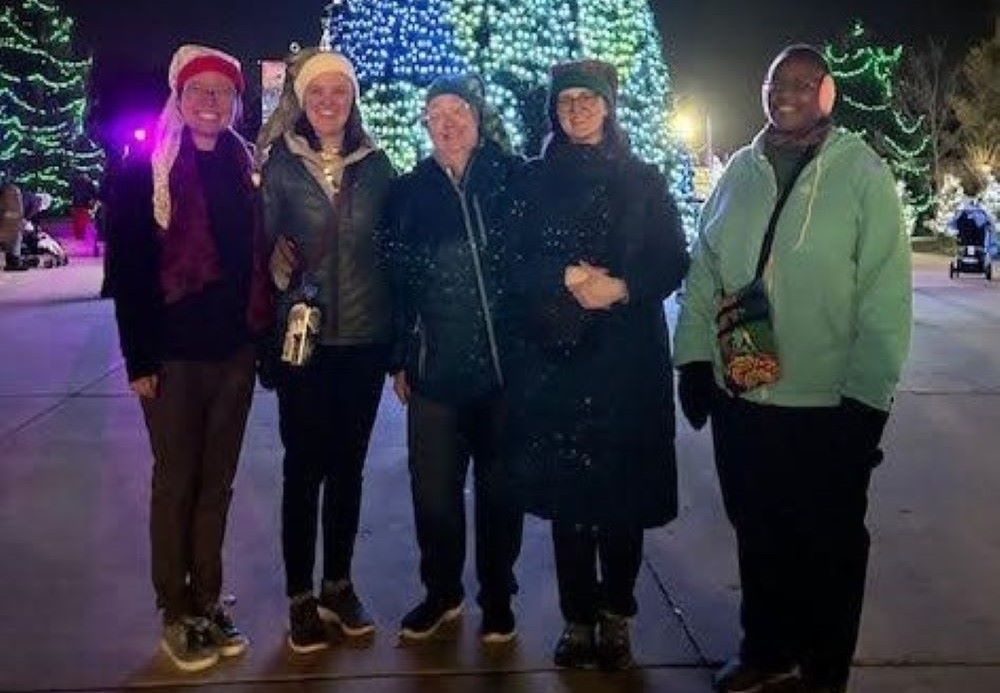
The Collaborative Dominican Novitiate allows Dominicans to pool resources and to ensure that women are not alone in formation. Pictured is the collaborative's 2023-24 class. (Courtesy of Dominican Sisters of Peace)
She does think there's something in particular about the 800-year-old Dominican values that discerners want.
"The Dominican charism is particularly timely," she said. "Veritas — the search for truth — the continued education of people, preaching. It's really badly needed in the 21st century."
"I do believe there was an energy that was created in discerning our future," added Fitzgerald. The previous congregations' names reflected their geographic location, and the Dominicans wanted to choose a new name that included everyone equally. They chose Dominican Sisters of Peace to reflect their shared values. Fitzgerald said this has been attractive to many of their discerners, who are eager to engage in ministry related to peace.
Living a communal life with women from a variety of ages and backgrounds can be both difficult and enriching.
"One of the challenges is also a blessing — a number of the women come from different cultures," Fitzgerald said.
"Not once did I feel like I needed to tone who I was down," said Gonzalez, who appreciates that the other sisters, most of whom are white and older, respect her Latina identity.
Advertisement
On the other hand, one aspect of the generational divide that has been challenging for Howard is her choice to wear a Dominican habit. To her, a habit is a powerful symbol of her vocation. People have approached her and responded positively to meeting a habited sister.
For some older sisters, however, the habit calls back the extreme rigidity of religious life before Vatican II, and makes them worry about negative associations with traditionalism. Howard understands their fears.
"How do you continue to claim that tradition and not get stuck in the past?" she said.
Fitzgerald said that while no other younger sisters at Dominican Sisters of Peace currently wear habits, she has spoken to women in discernment who like the idea of being a public witness in that way.
Sisters in both congregations engage in a variety of ministries, including newer areas like ecology and more traditional ministries like education and health care. After finishing her degree, Gonzalez hopes to work more with Latino communities, saying there's a lot of unmet need there. Howard hopes that sisters can get more involved with parishes in the future, an area where she thinks sisters could be beneficial.
"I get to carry God's voice to where it needs to be carried," said Gonzalez.
